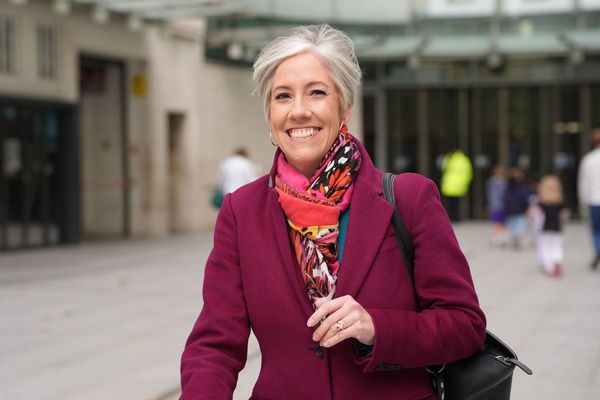
Mark Cuban is passionate.
Sports fans know his passion for the Dallas Mavericks, his NBA team of which he is the numbe1 fan.
He's never been one to shut up. In 22 years, as the owner of the Dallas Mavericks, he has paid several fines for insults and unsportsmanlike behavior. Cuban does not hesitate to provoke and taunt the players of the opposing teams.
He usually sits a few rows from the court. He is recognizable among all: he always wears a t-shirt. Apart from the players, he is one of the best known faces in the NBA.
In the hit TV show "Shark Tank," he stands out for his energetic and outspoken demeanor. When the investor believes in an idea, he pulls out all the stops to bring it to fruition.
He is also doing what many have tried and failed in, the almost impossible task of lowering the price of prescription drugs. Last January, the entrepreneur co-founded CostPlus Drug Company, an online pharmacy. It allowed consumers to find drugs at unbeatable prices, saving them colossal bills.
Cuban Won't Run for President
CostPlus Drug Company "fills and delivers prescriptions at cost plus a fixed 15% margin," the company says on its website. Cuban is able to provide these prices because there are no middlemen. CostPlus Drug Company bypasses health-insurers and negotiates directly with drug manufacturers.
All his success, coupled with his popularity, has often led some to encourage him to run for president. In a recent interview with TheStreet, Cuban said he won't be a candidate in 2024.
"NO interest at all," he said when asked if he will run. "I think I can have more impact outside the system."
He added: "Our political system is broken."
However, the billionaire turned TV reality star, remains very involved in political affairs. He encourages people to vote for the midterm elections scheduled for Nov. 8.
And he just took a stand on a very sensitive political issue which will be on the ballot in Nevada on Nov. 8.
In addition to congressional and state elections, voters in this state are called upon to vote on three ballot questions. Question 3 is about ranked-choice voting. On election day, voters would rank their top five candidates based on their choice. They would no longer choose just one person. If passed, the change would apply to all Nevada elections.
A "yes" vote means that during the primaries, registered voters, regardless of the political affiliation of the candidate or voter, will narrow the list of candidates to the top 5. The five candidates, who receive the most votes during the primary, advance to the general election.
A victory of the ballot will mean that the system will apply to congressional, gubernatorial, state executive and state legislative elections.
Opponents of the ranked-choice system argue that the system is complicated and confusing for most voters.
Cuban Promotes Ranked-Choice Voting
But for Cuban, who believes that the two-party system is not fair and does not represent a large part of the electorate, the ranked-choice system is the lesser evil. He just encouraged the people of Nevada to vote in favor of this proposal.
"Facts. If you live in Nevada, vote Yes to Question 3. Pass it on ..." the billionaire posted on Twitter on Nov. 5.
He then defended the system using a food metaphor when a user pointed out to him that the ranked-choice voting was "unnecessary and confusing."
"It's simple," the billionaire responded. "You pick candidates in the order of preference. Kind of like telling someone which ice cream flavors are your favorite."
The billionaire has never hidden his aversion to the two-party system.
"The duopoly I would shut down in a nanosecond ? The Democratic and Republican Parties. Together they are the definition of anti-competitive collusion that has been successful shutting out competition in a manner that is detrimental to the American People every minute of every day," he posted on Twitter in October 2020.
Ranked-choice voting is a system in which voters number the candidates on a ballot in order of preference. In each ballot, the candidate with the fewest votes is eliminated and the ballots which ranked him first are then redistributed. The candidate having obtained the majority of the votes after the counting of all the ballots wins.
Proponents say this system allows voters to have a say in the results, even if the candidate they ranked first is eliminated, and reduces polarization because politicians are encouraged to appeal to voters away from their bases.







